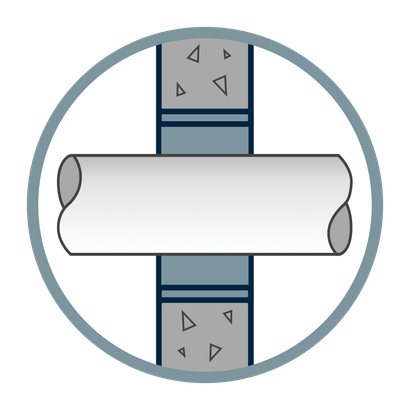Services
Building Commissioning
Initial Commissioning
Retro-Commissioning
Re-Commissioning
Life Safety System Commissioning
At Howe CxA, we have several full-time Fire Protection Engineers on staff who are licensed in almost every contiguous state, and we are fully qualified to conduct full Life Safety Component Testing. This includes assessment, testing, and evaluation of the following:
- Fire Alarm Systems
Despite its relatively small scope in relation to other systems, the fire alarm system is critical to the building operation and typically requires coordination with many other facets of the building commissioning.
In most buildings, the fire alarm system acts as a central hub of information gathering and distribution, especially with respect to other fire protection and life safety systems. The inclusion of a fire alarm CxA early in a project can provide early identification of necessary coordination between disciplines.
- Emergency Voice Alarm Communication
EVAC systems allow for more specific messages to be relayed to building occupants such as the type of emergency and instructions on how to egress when required. The intent of a voice evacuation system is to provide a clear message that can be easily understood in the event of an emergency.
Because of this, it is essential to start the commissioning process as early in the design phase as possible to ensure all test scenarios are accurate and all systems are coordinated to perform their intended functions.
- Fire Pumps
Commissioning of fire pumps is much more involved than commissioning of most other systems, and must be completed correctly to verify intended operation. Water supplies are a critical component of a fire protection system so the water supply must be commissioned to verify that it will operate when needed.
Fire pumps typically require several different tests to verify that the pump will perform as designed and that water delivered to the sprinkler and stand-pipe systems will be of sufficient flow and pressure.
- Emergency Generators
A backup power system is critical when used to provide electrical power if normal electrical service is interrupted. The owner of these systems needs to ensure that their vital life safety systems: key processes, important data, or essentials are protected and continue to operate in the absense of normal power.
The commissioning process is essential to ensuring equipment and system reliability, and provides instruction to the owner as to ongoing operation and maintenance procedures.
- Emergency Lighting
Modern lighting control systems can provide a level of functionality that was unheard of not long ago. However, increased functionality is congruent with increased complexity.
To ensure that complex systems function as intended, a formal commissioning process needs to be established.
Smoke Control Special Inspection
New or existing, altered smoke control systems where new equipment is installed typically require special inspection per the codes and jurisdiction of the area a particular building is located. Our fire protection engineers are well versed in fire and building codes, easily managing your state's local statutes.
Systems that may be subject to inspection are:
- Stair Pressurization
- Elevator Pressurization
- Smoke-proof Enclosures
- Atrium Smoke Control
- Smoke Exhaust
- Airflow Method Smoke Control
Types of structures that are subject to inspections are:
- Atriums
- High Rises
- Hospitals and Institutional Facilities
- Hotels and Resorts
- Correctional Facilities
- Stadiums and Arenas
- Convention Centers
- Underground Buildings
Firestop Special Inspection
When it comes to firestopping, early planning is essential for a smooth inspection process. On many projects, it can be an afterthought, with unfortunate disregard for how penetrants may disrupt a fire rated barrier. The subsequent tasks necessary to firestop the opening may be costly and/or inconvenient. This can easily make firestopping more difficult later on in construction. With early and continued involvement of firestopping professionals throughout the design process, difficulties and delays can be avoided, allowing for construction project delivery on time and on budget.
Our inspectors are extensively trained in the finer nuances of firestopping, and highly equipped to determine project compliance. Firestopping as a percentage of the project is rather small, but as a critical component of life safety, it can cause unnecessary delays and complications without oversight. Howe CxA's experts have exceptional knowledge of fire and building codes, fire protection engineers on staff, and a myriad of experience working with design and construction teams, allowing us to provide a comprehensive approach to firestop special inspections.
ABOUT HOWE CXA
We focus on large-scale, complicated projects such as stadiums, arenas, hotels, resorts, and mixed-use facilities.


